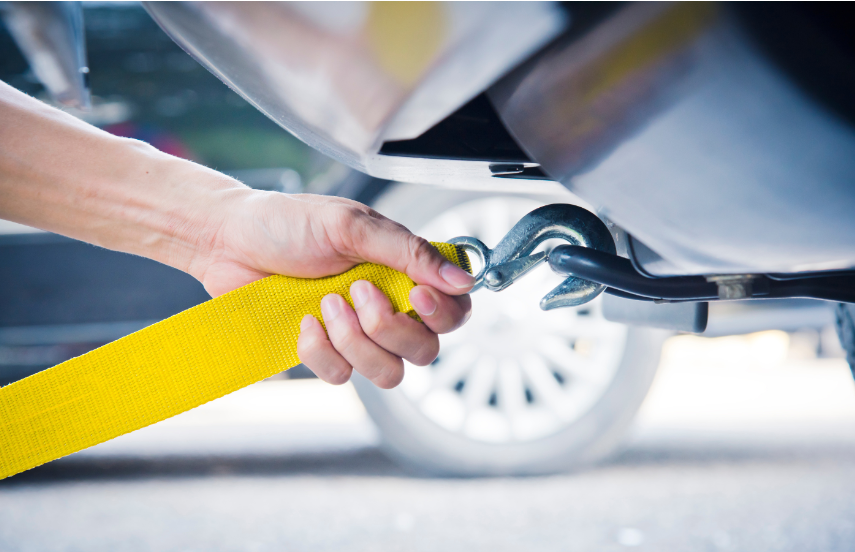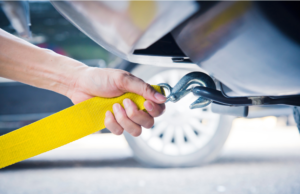
How Many Payments Can Be Missed Before Your Car is Repossessed
Nobody gets a car loan with the intention of defaulting on it. Things do, however, happen. Life is unpredictable. You’re racking up debt and can’t make your payments due to a health issue, layoff, or an expensive divorce. If you continue to fall behind on your car payments, you could face vehicle repossession. Vehicle repossession has severe financial repercussions in addition to the loss of your transportation.
How Car Repossession Works in Ontario
The regulations governing car repossession differ widely depending on where you live. The lender in Ontario has the power to seize and sue you for any overdue payments on the debt. The creditor can choose which course of action they want to take. Regardless of the variations between provinces, regardless of where you are in the country, there are two different kinds of car repossession: involuntary and voluntary.
- Involuntary Repossession — this occurs when you fail to make your vehicle payments and do not speak with your lender to work out a repayment plan, ending in repossession.
- Voluntary Repossession — when you discover you can no longer afford your car payments, you choose to return the vehicle to the lender. Voluntary repossession helps avoid additional charges that may arise as a result of an involuntary repossession.
At What Point is a Vehicle Repossessed
If you lease or loan a car and can’t keep up with your payments, your car could be repossessed. If you become behind in the payments, your lender will most likely contact you to inform you of the missing repayments. If you refuse to cooperate or are unable to meet the payments, the lender might have your vehicle repossessed by a bailiff.
Your lender will repossess your car to offset the money you owe. They will usually try selling your vehicle at a fair rate or auction it. The funds from the car sale will be applied to the remaining debt on your loan. You are fully liable for a balance owing, if the sale does not cover the total loan amount.
How Many Payments Can Be Missed Before Your Car is Repossessed?

You are in danger of getting your vehicle repossessed if you lease or finance it and cannot make your payments. Your auto lender will most definitely alert you that you have skipped car loan payments if you miss payments. If you disregard the notice and refuse to interact with your car lender, your lender may send a bailiff to take possession of your vehicle. How many payments can you miss before car repossession?
This will vary by lender, but usually, missing two or more payments consecutively can result in repossession. After missed payments, certain car lenders have equipment that can remotely deactivate your vehicle. These steps are conducted to recoup the money you owe on your car loan or have it stay in one place for the vehicle to be picked up. Lenders will most likely try to sell or auction your vehicle to make up for the missed payments.
What is the Impact of a Car Repossession on Your Credit Score?
Repossession affects your credit, which you should be aware of before applying for a car loan. Your credit rating will be negatively affected whether it’s a voluntary or involuntary repossession. Your credit record will show repossessions of your vehicle lasting up to seven years. It may be difficult to obtain another auto loan, a mortgage, or other forms of extra credit as a result of this. Although you may find a lender ready to lend to you, you will likely pay a higher interest rate.
How To Keep Your Car From Being Repossessed in Ontario
If you want to save your car from being repossessed, you should take the following steps:
Keep in Touch With Your Car Loan Provider
Receiving the vehicle loan installments that you owe is the best-case scenario for your lender. They consider repossession to be a last resort and will strive to avoid it if at all possible. After all, it takes a lot of time and effort for them to organize repossession, sell your automobile, try to collect the balance owing and maybe even sue you for unpaid debt. You should notify your lender as soon as you know you are experiencing financial difficulties and will be unable to make your agreed-upon vehicle loan payments. They might be able to work out a payment plan for you.
Voluntary Repossession
Another approach to escaping involuntary repossession as well as the costs that come with it is to go for voluntary repossession ahead of time. Once you know you won’t be able to make your installments, this is one of the best options. You will give the vehicle voluntarily for repossession. You should always notify your car lender before taking any steps so that they are informed of your plans. You should be aware that, should there be a gap between the vehicle’s sale price and the amount you are owing, you will then be accountable to pay the balance to them.
Sell Your Vehicle
It could be a good option to sell your vehicle if you believe you can no longer be able to make payments. It’s a good idea to take care of this before your vehicle gets repossessed. You can try to recoup money by selling it to pay off your existing loan obligation.
Book an Appointment With a Debt Expert for Debt Relief Options

Debt Experts in Ontario can assist you in avoiding having your car repossessed. They will introduce to you several debt relief alternatives that may be beneficial to you and walk you through them. Although debt relief can only help you pay off unsecured debts, it can often ease financial stress and allow you to keep up with your vehicle payments. A consumer proposal is a legal kind of debt relief that can minimize your debt by up to 80% while letting you maintain your assets. Another one is bankruptcy, which enables you to discharge all of your unsecured debts in return for any non-exempt assets you own. Both types of debt relief instantly result in a stay of proceedings, allowing you to avoid creditors and wage garnishment.
You could include any existing car debt in your bankruptcy or consumer proposal if your car is repossessed. If your vehicle has not been repossessed or given back, you cannot include this obligation because it is still considered a secured debt. Following voluntary or involuntary repossession, this debt becomes unsecured debt, which can be included in a consumer proposal or bankruptcy.
At EmpireOne Credit, we help individuals get back in control of their finances, we help Canadians struggling with debt to gain balance and control. We will take the time to get to know you and your financial situation before recommending the best debt relief option for you. Your car doesn’t have to be repossessed, to get a free consultation, you are just one appointment away.





